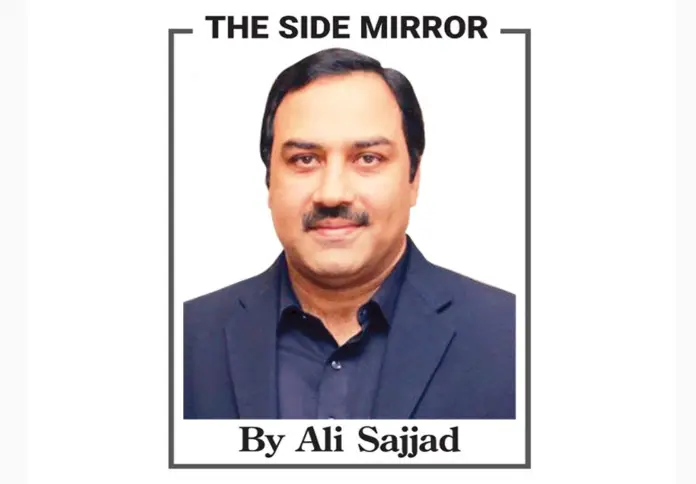I had predicted in the last pieces about the potential entry of seasonal birds in the potential PML-N folds.
As the dust settles for a heated election atmosphere, the migration of electable crops to the potential ruling party – PML-N – has started. It’s like a déjà vu of past political upheavals. This scenario not only challenges the idea of genuine representation in the parliament but also raises concerns about equal opportunities for electoral activities for every community.
Supreme Court Chief Justice Justice Qazi Faez Isa has rightly taken a stand for the rule of law and the Constitution. He ensures that general elections will take place in the country on February 8 next year. The Election Commission of Pakistan, in alignment with this resolution, is implementing all necessary measures. The caretaker government has no room for excuses – the groundwork for supporting the election process is laid.
At this juncture, it is crucial that every eligible political party has an equal chance to conduct election campaigns. This ensures transparency in the election results and builds trust among the people. However, all eyes are on the PML-N, with a narrative that Nawaz Sharif is being facilitated in his legal battles, with sentences and disqualifications seemingly fading away. Even in his presence, a political field opens up for him, leaving opponents and the public with the impression that powerful forces have given him the green light.
This impression becomes apparent as politicians, once critical of the Sharifs, now flock to join the PML-N. The Sharifs, once labeled as traitors and thieves, are now attracting pledges of allegiance. This shift was particularly evident during the visit of Mian Nawaz Sharif, Mian Shahbaz Sharif, and Maryam Nawaz to Balochistan. Over 30 prominent political figures from major political families in Balochistan announced their allegiance to the PML-N.
This move sparks questions and speculation. Is it a genuine change of heart or a strategic move influenced by external forces? The dynamics of political alliances are complex, and the public is left wondering about the motives behind such shifts. As the country gears up for the upcoming elections, the need for a fair and transparent process becomes paramount. The onus is on all political parties to ensure that the democratic spirit of equal opportunity and representation is upheld, fostering a system that truly reflects the will of the people.
Amidst the shifting political landscape, notable leaders from Balochistan, including the Balochistan Awami Party (BAP) leader and former Chief Minister Jam Kamal, Mir Saleem Khosa, Noor Muhammad Damar, Rabab Bilidi, Sardar Abdul Rehman Khetran, Muhammad Khan Lahri, and Balochistan National Party’s Mengal, National Party, Tehreek-e-Insaf, and People’s Party, have changed their political affiliations. A general perception surrounds these leaders, suggesting a tendency to align with power, attaching themselves to the party poised for ascension.
This trend will harm the authenticity of the PML-N. Even if the PML-N genuinely wins and assumes power through free, fair, and transparent elections, perception will remain that it attained power with the backing of influential forces.
I should admit the fact that the PTI faces an uneven electoral field, with its top leadership is behind bars. Their participation in elections is uncertain due to serious charges against them. Additionally, local PTI candidates struggle to obtain permission for election meetings, bolstering the party’s claim of an uneven playing field.
Similar suspicions are cast upon the PPP, which, despite being part of the coalition government for fifteen months, feels deprived of the pleasures of power. Accusations of involvement in anti-people government decisions further fuel the blame game inherent in our traditional political culture.
Unfortunately, our political landscape lacks a culture of tolerance and ethics, preventing parties from maintaining principled stands and acknowledging each other’s mandates. The compromise of party ideology for personal political gain has historically paved the way for democratic setbacks and extra-constitutional measures. Today’s political arena appears to prioritize personal interests over principles. To foster a healthier democracy, it is imperative to prioritize politics based on ideas and principles. Without this shift, the nation risks perpetuating a cycle of opportunism and political maneuvering that undermines the very essence of democracy.







